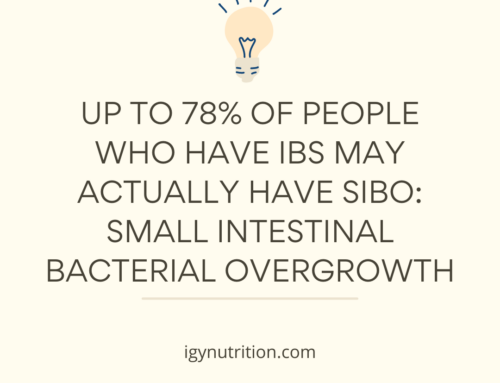Ladies, this one is for you. Is your “time of the month” really more like a “time of the once every few months?” Or “time of the once every two weeks?” Maybe your cycle feels like a faucet, with migraines and unbearable cramps in tow. Or perhaps it’s light – concerningly light.
The health of your cycle depends on your sex hormones, like estrogen, progesterone, and testosterone (yes, women have testosterone too).
Several other bodily processes depend on your sex hormones as well. Your weight, mood, digestion, and energy levels each interact with the sex hormones.
And, you guessed it – gut health affects sex hormones too. Let’s take a look at estrogen in particular.
Sex Hormones: Meet the Cast
Back up – let’s review what hormones are.
Hormones are chemicals that act as messengers between your brain and your cells. It’s a way for the brain to control what your body does. For example, the brain releases hormones that stimulate the release of an egg from the ovaries. Queue your cycle.
Several hormones in the body work to regulate your cycle. The primary three are estrogen, progesterone, and testosterone. Today, we’ll take a look at estrogen in particular.
All About Estrogen
Pop culture associates estrogen with mood swings – but we promise, it doesn’t deserve the bad reputation it has.
Estrogen refers to a group of hormones that contribute to reproduction (in both men and women), mental health, and strength. Women have more of it than men, but it’s vital for men’s sexual health as well.
In women, estrogen is important for:
● Menstruation
● Development of female reproductive organs
● Bone density
● Memory and cognition
● Fat placement (breasts, hips)
● Vaginal health
Just like we saw with testosterone, having too much or too little estrogen comes with consequences. Low estrogen leads to:
● Low bone density
● Brain fog
● Depression, headaches
● Vaginal dryness
● Increased likelihood of UTI
● Irregular menstruation (light periods, usually)
● Mood swings
● Weight gain (around midsection, usually)
What about too much estrogen?
● Bloating
● PMS
● Fatigue
● Bad memory
● Irregular menstruation
● Low libido
● Tender breasts
● Weight gain
Keeping a healthy balance of estrogen is integral to mental health, cognition, strength, and a regulated period.
The Gut Microbiome and Estrogen
The gut microbiome regulates the synthesis and distribution of all three sex hormones. Therefore, maintaining the gut microbiome’s balance is vital to hormonal balance. (Check out our blogs on dysbiosis if you’re a bit lost here!) Let’s look at gut bugs and estrogen.
Estrogen is excreted from the body through the gut (in your stool). However, if the body needs more, it can reabsorb the estrogen in the gut with the help of an enzyme called beta glucoronidase.
Certain microbes in the gut work to regulate estrogen by producing beta glucoronidase. If these microbes are overrepresented in the gut microbiome, they may produce too much of the enzyme.
An excess of beta glucoronidase results in too much reabsorption of estrogen, causing irregular estrogen levels in the body. For this reason, avoiding dysbiosis is vital for healthy amounts of estrogen.
The Takeaway
Estrogen is not only important for the health of your cycle – it’s also crucial for mental health, cognition, memory, bone strength, sexual health, and healthy fat distribution.
Since the composition of your microbiome plays such a key role in your estrogen levels, supporting your gut bugs will support your cycle.
Tag us in photos of your digestive wellness journey on Instagram @igynutrition. Thanks for joining us today!




